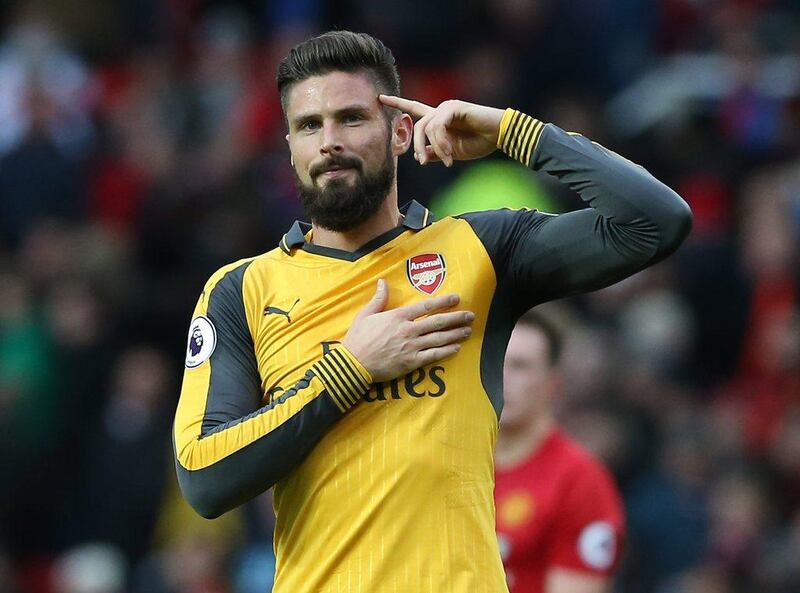It seems with increasing certainty that French striker Olivier Giroud will leave Arsenal to join Everton this summer, if the claims made by Everton scout Carlo Jacomuzzi are anything to go by.
Tasked with scouting Napoli's Duvan Zapata, Jacomuzzi has said any deal for the Colombian forward is unlikely due to Everton's interest in Giroud.
"There are no developments in the negotiations between Everton and Zapata, also because I think Everton are today going to finalise a deal for Giroud for £20 million (Dh95m), which is a bargain compared to the £25m being demanded for Zapata," Jacomuzzi told Radio CRC.
With Romelu Lukaku destined for the Goodison Park exit after rejecting an improved contract and making clear his ambitions to move on, Giroud appears to be the player Everton manager Ronald Koeman has targeted to lead the line next season.
Giroud, who found himself on the periphery of the Arsenal first team last season, might be viewed as a step down from Lukaku - a player who scored 25 Premier League goals last season, but a closer look at the stats from 2016/17 show that Giroud was far more effective than perhaps he is given credit for.
According to Opta Stats, From 1,196 minutes played, which included 11 starts, Giroud scored 12 goals, meaning the France international was on target every 99.5 minutes. In comparison, Lukaku played 3,267 minutes, scoring 25 goals - a goal every 130.7 minutes.
Granted, a base look at such stats do not tell the full story.
The service Giroud received was arguably better than Lukaku, while it does not take into account the opponents or circumstances in which the goals were scored. But what it does show is Giroud is a more efficient goal-scorer than is often perceived.
What is most telling about the stats from last season is the differing roles in which both strikers were deployed.
It is clear that Lukaku, with 63 successful dribbles, is a striker more accustomed to running at defences, while Giroud's two dribbles highlight a link-up forward who plays most often with his back to goal.
Giroud's far superior defensive stats, despite playing more than 2,000 minutes fewer than Lukaku, also show a more rounded team player. Giroud won eight tackles to Lukaku's six, made 17 clearances to Lukaku's 27, blocked as many shots on goal (4), and produced eight interceptions to Lukaku's zero.
Is Koeman, perhaps aware of the difficulty of replacing Lukaku's goals with one new striker, seeking ways to reshape his team that will result in more goals from the rest of his side? After all, Lukaku was responsible for 40 per cent of Everton's Premier League goals last season.
In Giroud, Everton will have a player capable of scoring goals while leading a line that will place greater emphasis on link-up play, which in theory, should result in greater goal output from the rest of the side.
But will that be enough to replace Lukaku's sizeable contribution?





